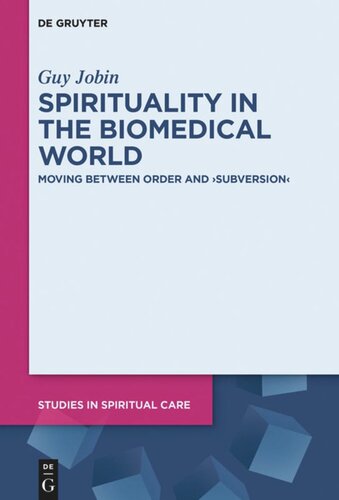

Most ebook files are in PDF format, so you can easily read them using various software such as Foxit Reader or directly on the Google Chrome browser.
Some ebook files are released by publishers in other formats such as .awz, .mobi, .epub, .fb2, etc. You may need to install specific software to read these formats on mobile/PC, such as Calibre.
Please read the tutorial at this link: https://ebookbell.com/faq
We offer FREE conversion to the popular formats you request; however, this may take some time. Therefore, right after payment, please email us, and we will try to provide the service as quickly as possible.
For some exceptional file formats or broken links (if any), please refrain from opening any disputes. Instead, email us first, and we will try to assist within a maximum of 6 hours.
EbookBell Team

4.7
16 reviewsThe need to take the spiritual experience during illness into account is part of a broader trend in Western societies—a fascination with the practical uses of spirituality and its contribution to individual wellbeing, whether through a religious or a humanist tradition. This understanding of spirituality differs from traditional views embedded in religious traditions. This book takes a critical point of view at the biomedical representation of the function of spirituality in care. Medicine reorders notions such as life, death, health, sickness, and spirituality. This process is called here “sapientialization”, i.e. the spiritual experience is expressed and understood under the auspices of and in terms of wisdom. This view tends to identify spirituality and ethics. I propose an alternate understanding of spirituality, grounded on its subversive power. Inspired by the work of the theologian John D. Caputo, it is critical of some problems that are associated with the sapientialization of spirituality in biomedicine, such as the medicalization of spiritual experiences or the instrumentalization of spirituality. It provides an understanding of spirituality that honours both the medical interest in it and its capacity to resist to instrumentalization.